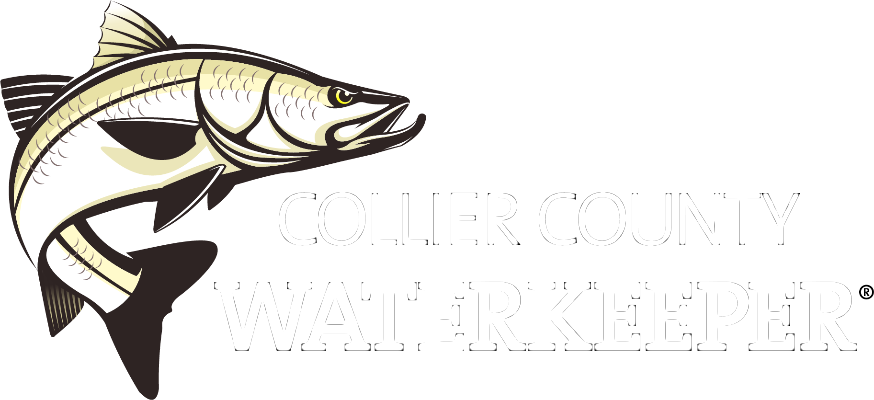In a nutshell . . .
Getting a permit to alter wetlands once meant jumping through hurdles that developers considered expensive and needless. The federal government, through a mesh of regulatory agencies that included the U.S. Army Corps of Engineers and the U.S. Fish and Wildlife Service, had to examine the application and decide whether the project being proposed would have adverse affects on, among other things, endangered or threatened wildlife.
Many worthwhile developments, the development and construction industries argued, were being held up because of burdensome "regulation." In one particularly egregious example of developer frustration, a wildlife biologist with the Fish and Wildlife Service was fired for daring to mention that a project might reduce the number of nearly extinct Florida panthers. Other examples abound.
But in the last days of the Trump administration, the developer-friendly folks who took over Florida's environmental protection structure, petitioned the federal government to turn that permitting authority over to them. The reasoning was: No more hold-ups. No burdensome letters to dot and to cross. No strip malls or high-rises bushwhacked by some silly bird nobody cared about.
There was, with good reason, much angst and frustration now among people who understood that drinking water comes not from spigots, but from underground aquifers replenished by the swamps that developers love to drain. A group of them banded together and sued. They argued that the safeguards once afforded by federal oversight had vanished in the state's pell mell rush to cram more and more people into Florida. And last February, a federal court said the transfer of wetland permitting to the state was illegal.
“Today’s ruling sends a clear signal that Congress meant what it said when it passed the Endangered Species Act,” said Earthjustice attorney Christina I. Reichert. “No state can be allowed to take over a federal program as important as the Clean Water Act’s wetlands permitting program by making an end-run around the Endangered Species Act.” The full Earthjustice release is here: https://earthjustice.org/press/2024/federal-court-strikes-down-epa-approval-of-florida-wetlands-program.
Earthjustice provided the legal counsel to the organizations that accused the EPA and the Fish and Wildlife Service of violating the Endangered Species Act when they approved the state's takeover of the Clean Water Act's wetlands protection permitting program.
The plaintiffs were the Center for Biological Diversity, the Sierra Club, the Conservancy of Southwest Florida, the St Johns Riverkeeper, the Florida Wildlife Federation, the Defenders of Wildlife, and the Miami Waterkeeper.
"We have been foundational to the case as star declarants and are uniquely situated to support the litigation as an organization located in the heart of the Western Everglades and Big Cypress watershed. Our detailed technical analysis of state Clean Water Act Section 404 permit applications for proposed sprawl development that would encroach on wetlands and endangered species habitats helped provide concrete examples of how this unlawful delegation of authority failed to protect our natural resources," said Amber Crooks, Environmental Policy Manager for the Conservancy.
There's no time to celebrate, though. The joy that attends a victory must ALWAYS be packed back in the trunk where it rests during the constant struggle to save us from ourselves.
Already the State of Florida has mounted an aggressive campaign to contest the decision as a case of government overreach.
"The ability for states to regulate their own natural resources is vital, especially for a state like Florida, where protecting its unique environment contributes to its economic success," the Florida Department of Environmental Protection said in a statement released March 21.
"I’m excited to share that my amendment to protect Florida’s 404 Program from federal overreach has passed. We have to be good stewards of our unique natural resources in the Sunshine State, and my amendment continues to give Florida the flexibility to make the decisions that are best for us. We will reduce project costs and save taxpayer dollars, all while improving responsiveness to applicants and the communities’ projects they serve," said U.S. Representative Aaron Bean of Florida's 4th District. That's who added an amendment to the Creating Confidence in Clean Water Permitting Act that would codify the transfer of permitting powers from the Environmental Protection Agency to Florida "watchdogs."
The bill now moves to the Senate, where, if passed and signed into law, will undercut the federal court's decision and restore power to people who see more beauty in a strip mall than in a snail kite, who seem to think that Great Wolf Lodges and Chuck E. Cheeses are what keeps a thousand people a day elbowing each other in their struggle to find a place on this quickly vanishing sandbar we call home.
Write your senators. Don't email them unless you have to. Even Rick Scott, who made it his first priority to dismantle Florida's Growth Management tools during his first term as governor, knows how to delete a thousand messages with the touch of a key. Tell him and Marco Rubio we have memories and we're not afraid to use them.
Make them carry all those cards and letters to the trash if they're determined to ignore their constituents. Maybe it will give them something to think about.
